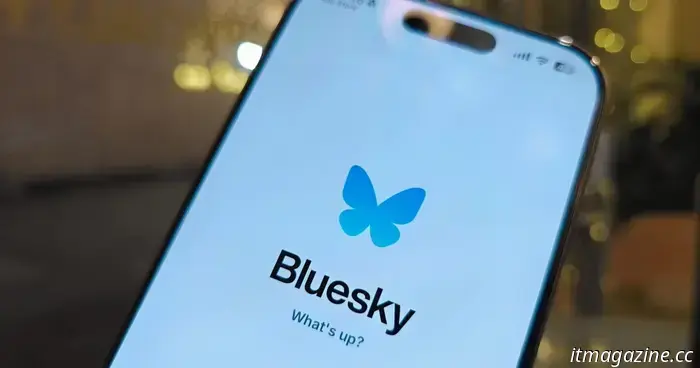
I’m certainly not prepared for LG’s commercials that feature emotional awareness.
LG has announced a partnership with Zenapse to introduce emotionally aware advertising across the webOS smart TV platform, including LG Channels, its free ad-supported streaming service. However, I find the concept unsettling.
I generally doubt the effectiveness of advertising in persuading me to take action or make a purchase that I hadn't already considered. Most of the ads I encounter these days appear on YouTube or on a few traditional cable TV channels that I still watch. When they are targeted, it’s often based on my previous online activity (yes, QuadLock, I’ve already made a purchase, so why are you still soliciting me?).
That said, I can’t deny that I respond to emotional scenes in films and TV series. Moments like saying a final goodbye to a loved one will always leave me in tears. An ad that successfully pulls at those heart strings right after such an emotional scene might influence me, even if I try to resist.
Understanding the viewer's mindset
As reported by StreamTV Insider, Zenapse has developed a “proprietary Large Emotion Model (LEM)”—essentially an AI language model trained on data that categorizes and interprets individuals' emotional and psychological triggers.
“It aids in deciphering a viewer’s mindset—what drives them, what connects with them—allowing brands to provide more relevant and compelling marketing messages,” said an LG spokesperson to the website.
As if that’s not concerning enough, LG is incorporating its own user data to improve the precision of Zenapse’s LEM. LG utilizes a technology called ACR, or automatic content recognition, on 45 million smart TVs in the U.S. (or connected TVs, as the advertising industry terms them). ACR can identify what you are watching, even from external devices such as an Apple TV or a Blu-ray player.
Combining these technologies could potentially enable advertisers to target viewers based on their “broader mindsets, values, and motivators,” especially when the specific program or film aligns with those factors.
Concurrently, advertisers are becoming more adept at assessing the emotional impact of their messages and their effectiveness in achieving outcomes like boosting sales. In a 2022 blog post, Kelly Abcarian, NBCUniversal’s EVP of Measurement & Impact for Advertising and Partnerships, shared insights on how the content giant was “testing and learning […] to further validate the link between the audience’s emotional reaction to a specific ad and its market performance.”
Emotionally aware advertising seems like a logical next step. Pairing ads that are known to evoke particular emotional reactions with viewers identified as having mindsets, values, or motivators that make them particularly receptive to those messages could be highly effective.
The idea is that this allows advertisers to transcend traditional demographics and connect with viewers in a more meaningful manner by gaining a better understanding of their motivations, values, and personality traits, making ads feel ‘more human and personally relevant.’—StreamTV Insider
On the surface, that sounds like a commendable objective. I’ve always maintained that if I have to watch an ad, it might as well be relevant. So why does the entire idea feel uncomfortable?
I believe it boils down to conscious versus subconscious relevance. When I’m about to buy a new car, automotive ads are relevant. As I approach retirement age, seeing ads featuring 60-year-olds enjoying their retirement makes sense—even if I’m not ready to stop working, I don’t mind those suggestions.
But witnessing an ad for life insurance during an emotional movie, because a LEM has determined that I’m feeling vulnerable about my mortality, makes me very uneasy.
I’m aware that all advertisements carry varying degrees of subconscious, emotional messaging. As human beings, this is a reliable tactic to encourage us to act in various ways.
However, I have no interest in exposing my personal emotional landscape for advertisers to exploit “emotional mindset modeling” to enhance their market performance.
What can you do?
Fortunately, there are measures we can implement to limit the data our TVs gather (and share).
Consumer Reports offers an excellent guide on how to modify privacy settings on major smart TV and streaming device operating systems. While these adjustments may not entirely eliminate data collection, they can help reduce it and possibly stop data from reaching third-party systems.
For those with technical skills, utilizing a network-based ad-blocker can effectively restrict the information your devices send back to their servers.
Ultimately, disconnecting your smart TV from the internet is the only surefire method to prevent data collection. Once you do that, finding an external streaming device from a company that does not follow similar practices becomes your next task.
Currently, an Apple TV 4K seems to be your best option.
Other articles
 5 films departing Amazon Prime Video in April 2025 that you need to see
These timeless films remain enjoyable, highlighting five movies departing from Amazon Prime Video in April 2025 that you should see.
5 films departing Amazon Prime Video in April 2025 that you need to see
These timeless films remain enjoyable, highlighting five movies departing from Amazon Prime Video in April 2025 that you should see.
 Get a $240 discount on the Xgody Gimbal 5 Smart Mini Projector available at Walmart.
The Xgody Gimbal 5 Smart Mini Projector is now available for $58, reduced from its original price of $300. While its resolution is limited to 720p, it still offers excellent picture quality!
Get a $240 discount on the Xgody Gimbal 5 Smart Mini Projector available at Walmart.
The Xgody Gimbal 5 Smart Mini Projector is now available for $58, reduced from its original price of $300. While its resolution is limited to 720p, it still offers excellent picture quality!
 CATL claims that its next-generation dual-power electric vehicle battery will provide a range of 930 miles.
At a press event in Shanghai, founder and chairman Robin Zeng informed reporters that dual-power batteries could offer customers more comprehensive capabilities compared to traditional batteries.
CATL claims that its next-generation dual-power electric vehicle battery will provide a range of 930 miles.
At a press event in Shanghai, founder and chairman Robin Zeng informed reporters that dual-power batteries could offer customers more comprehensive capabilities compared to traditional batteries.
 Grab this 50-inch Insignia TV now for $220, reduced from its original price of $300.
The Insignia 50-inch F30 Series 4K LED is currently priced at $220, down from its original MSRP of $300. Enjoy additional savings on this budget-friendly Fire TV model when you buy it today.
Grab this 50-inch Insignia TV now for $220, reduced from its original price of $300.
The Insignia 50-inch F30 Series 4K LED is currently priced at $220, down from its original MSRP of $300. Enjoy additional savings on this budget-friendly Fire TV model when you buy it today.
 Bluesky offers verified blue tick accounts, which are significantly better than those on X and Meta.
Bluesky will grant a blue tick exclusively to accounts that are significant or noteworthy. It also allows organizations, like media outlets, to verify their trusted personnel.
Bluesky offers verified blue tick accounts, which are significantly better than those on X and Meta.
Bluesky will grant a blue tick exclusively to accounts that are significant or noteworthy. It also allows organizations, like media outlets, to verify their trusted personnel.
 'Electrotech' has the potential to end Europe's dependence on fossil fuel imports.
Ember discovered that these three technologies could significantly reduce Europe's reliance on fossil fuel imports from nations such as the US and Russia.
'Electrotech' has the potential to end Europe's dependence on fossil fuel imports.
Ember discovered that these three technologies could significantly reduce Europe's reliance on fossil fuel imports from nations such as the US and Russia.
I’m certainly not prepared for LG’s commercials that feature emotional awareness.
LG has revealed a collaboration with a company named Zenapse to introduce what they call emotionally aware advertising throughout the entire webOS smart TV experience, encompassing LG Channels, the company's free ad-supported streaming TV (FAST) service. This idea makes me feel uneasy. I generally view advertising with skepticism when it comes to its ability to influence me […]
